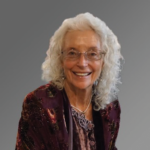Dr. J.L. Moreno is the psychiatrist who developed the role theory of personality and originated psychodrama, group psychotherapy and sociometry – the science of how people make choices in groups. Dr. Moreno described people as holding a variety of roles, and that good mental health relates to our ability to move easily from role to role, practicing appropriate behavior with each.
A role consists of a noun preceded by an adjective – for example, the dedicated teacher role, the compassionate psychotherapist role, the creative counselor role.
This description presents a lens for exploring how we want to be and how we want to see ourselves, particularly as we look to entering a helping profession or increasing new skills within the profession. Accurately labeling a role that we aspire to create for ourselves can support us in clarifying our needs and wants for that role.
Once you accurately define the role you would like to step into, you can explore the requirements, questions, advantages and disadvantages of that position and evaluate how that role description settles into your body – Do you feel anxious, excited, worried, uncertain, enthusiastic? Other? (An approach to exploring these feelings and considerations is outlined in the accompanying article, “Occupying the Empty Chair.”)
Points to consider
If you’re thinking of becoming a helping professional in a therapeutic field, there are many practical points to consider before you jump in.
What field:
Are you feeling called to work with a particular kind of problem, or do you see yourself as a generalist, a person with skills to address a variety of concerns? If you wish to focus, some possibilities might be people with anxiety, depression or another kind of mood disorder, or people who have survived traumatic experiences, are struggling with eating disorders, or are addicted to alcohol and other drugs. Do you want to work with seriously mentally ill people, or people experiencing everyday problems?
Population:
Are you called to work with a particular population? Do you imagine working with a particular age group, perhaps very young children, older children, teens, young adults, adults or older adults? Would you like to work with individuals, couples, families or groups?
Education:
Except for addictions counselors – although this is changing – most settings require an advanced graduate degree. Here you will have to consider time and cost of education, scholarships or financial aid if necessary, school debt and other factors, particularly if the degree will lead to licensure in your state if you want to be state-credentialed. If you are planning to specialize, you will likely benefit from additional focused training, some of which you may take during your college courses and others of which will supplement your learning after graduation.
Choice of field:
Your choice of field is closely connected to the kind of education you will want to pursue, especially if you are seeking licensure, a state credential, or certification (which is typically a credential in a particular discipline). Your choice of field may be social work, counseling, marriage and family therapy or psychology, each of which has a slightly different lens to look at personal and relational problems and is related to state licensure. In addition, there are a range of creative arts therapies that offer professional certification or registration, such as art therapy, play therapy, psychodrama, music therapy, drama therapy or music therapy.
Specialized certifications:
Additional certifications are available for many specialties, such as EMDR, sex therapy, trauma-informed care, Somatic Experiencing, yoga therapy, psychodrama and sociometry, group psychotherapy and the like, from a variety of institutes and practitioners. However, experience has shown that these kinds of certifications vary greatly in rigor, depth, practice requirements and time commitment, so you will want to thoroughly investigate what you will learn, how you will practice the skills you are learning, how you will receive clinical feedback and how the training will prepare you to effectively and ethically offer this specialty or discipline.
Licensure:
Licensure in your chosen field is important if you would like to be eligible for reimbursement via health insurance. Depending on your professional setting and geographic area, reimbursement for services may be difficult. In addition, professionals who take insurance are obligated to complete extra paperwork and often have additional requirements regarding the kinds of services they can provide.
Income:
What kind of income are you expecting to earn, and is that income reasonably sufficient to be self-supporting or partially supporting in the geographic area where you live? If you expect to work for an agency or organization, what is the entry-level pay and what can you expect to earn in perhaps five years? Will you take health insurance, or work only with people who can pay you directly? Will you offer a sliding scale and how will you figure that?
Work setting:
How will you organize your practice? Will you work for an agency, organization, hospital, treatment center, hospice, health department, shelter, halfway house, university, government facility or program, or in another setting? Do you see yourself in private practice, which might be a group practice or a solo private practice? Will you work in more than one setting or one setting only? Will you work online, face-to-face or in a hybrid combination?
Marketing:
If you are planning to enter a self-employed occupation as a psychotherapist, consultant, trainer or similar role, you will have to identify a comprehensive marketing strategy for yourself. This typically involves a website, additional online presence, plans for outreach to your ideal population, networking, advertising and other marketing and advertising venues. Your strategy should also involve a budget and the decision about how much marketing you will do yourself and if you will hire others to help you.
Self-care:
Are you able to practice self-care habits personally, and will your organization support you by establishing and sustaining a healthy work environment? Components of self-care include time management and scheduling, a strong personal and professional support system, excellent supervision and mentoring, and the ability to balance role demands of obligations to family, children and friends. Community care includes the recognition of hidden and apparent trauma in the work setting, sufficient staff to permit reasonable scheduling and adequate vacation time, thoughtful clinical and other supervision, and support for ongoing quality training.
“Occupying the Empty Chair”
When we think of using the well-known “empty chair” activity, – one of the standards of psychodrama – we typically think of using this activity to explore therapeutic concerns with the people we work with.
Yet, we can also employ this activity for ourselves, helping professionals or would-be helpers to clarify the roles that we want to play professionally.
Here’s how to explore a possible professional role that you are thinking of “playing”:
- Find two chairs or other “seats.” For instance, one may be a chair and a seat on a sofa or loveseat, or a small stool.
- Decide which chair is the “whole” you and which chair is the “role” that you aspire to.
- Alternatively, which chair is the role you aspire to and which chair represents the kind of person you may wish to work with in the future?
- Go to the chair that represents the role that you aspire to. Allow yourself to settle into this chair.
- Now you can explore a variety of exchanges; for instance, the time-conscious psychotherapist and the rambling teenager, or the traditional talk therapist and the creative arts therapist.
- Take a turn in both roles and create a dialogue between the two. Notice how you feel emotionally and physically. Excited? Inspired? Worried? Unsure?
- As you continue improvising, speaking aloud and moving from chair to chair, you may find that you spontaneously discover new ideas and possibilities, as well as potential problems or even roadblocks. Whatever shows up in your improvised conversation is useful for further exploration.
In the world of psychodrama, Dr. Moreno would have described this activity as a “Monodrama.”
————————————
 Karen Carnabucci, LCSW, TEP, is a board-certified trainer, educator and practitioner of psychodrama, sociometry and group psychotherapy and the founder of the Lancaster School of Psychodrama and Experiential Psychotherapies in Lancaster, Pa. She is also certified as a facilitator in Family and Systemic Constellations. Learn more at www.realtruekaren.com.
Karen Carnabucci, LCSW, TEP, is a board-certified trainer, educator and practitioner of psychodrama, sociometry and group psychotherapy and the founder of the Lancaster School of Psychodrama and Experiential Psychotherapies in Lancaster, Pa. She is also certified as a facilitator in Family and Systemic Constellations. Learn more at www.realtruekaren.com.
 Linda Ciotola, M.Ed., TEP, is a board-certified trainer, educator and practitioner of psychodrama, sociometry and group psychotherapy and a certified trainer in the Therapeutic Spiral Model, a psychodramatic model for trauma survivors. She has a background in education, having taught at all levels of fifth grade through university and adult education and is a certified health coach and yoga instructor. She is the co-creator of ACTS, an online training program for using psychodrama with survivors of trauma. Learn more at www.healing-bridges.com.
Linda Ciotola, M.Ed., TEP, is a board-certified trainer, educator and practitioner of psychodrama, sociometry and group psychotherapy and a certified trainer in the Therapeutic Spiral Model, a psychodramatic model for trauma survivors. She has a background in education, having taught at all levels of fifth grade through university and adult education and is a certified health coach and yoga instructor. She is the co-creator of ACTS, an online training program for using psychodrama with survivors of trauma. Learn more at www.healing-bridges.com.
Karen and Linda are authors of the book “Healing Eating Disorders with Psychodrama and Other Action Methods: Beyond the Silence and the Fury.” They have published journal articles and occasionally offer trainings together.






